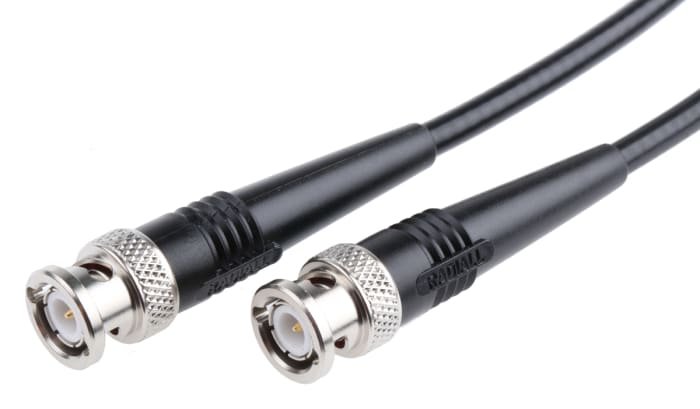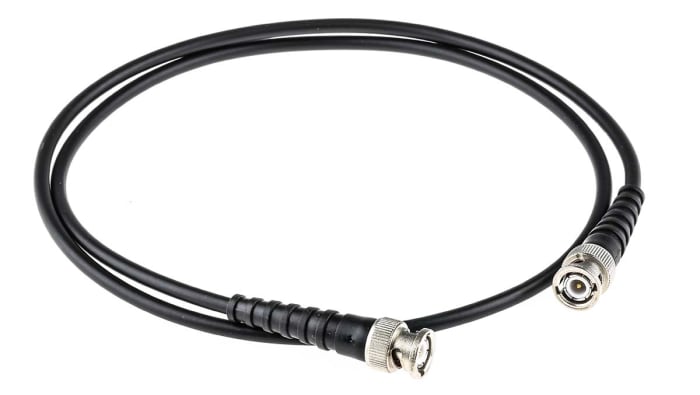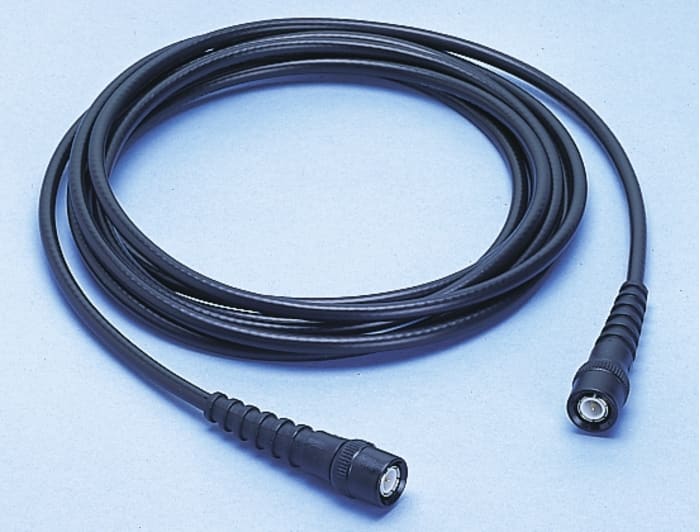Technical Document
Specifications
Brand
RS ProTerminated/Unterminated
Terminated
Connector 1
BNC
Connector 2
BNC
Coaxial Type
RG58
Connector 1 Gender
Male
Connector 2 Gender
Male
Characteristic Impedance
50 Ω
Length
1m
Connector B Gender
Male
Connector B
BNC
Connector A
BNC
Distrelec Product Id
30404629
Country of Origin
United Kingdom
Product details
RS Pro BNC Standard Coaxial Cable
These Coaxial Cables are commonly used for Internal wiring of mainframes, communication instruments, and electronic devices as well as Connection of test head and interface of IC test system. This range of coaxial cable assemblies offer a highly reliable electrical connection for your given application.
What is a Coaxial Cable?
A coaxial cable is a specific type of cable that is made up from copper combined with other metal shield materials and components to block signal interference. They include one physical channel to carry the surrounding signal, usually accompanied with a layer of insulation.
Features and Benefits
• A coaxial communication cable, great for communicating
• Standard plug to plug BNC connectors
Typical Applications
• Transmitting signals for televisions and areal connections
• Transmitting signals of CCTV images
• Transmitting signals for broadband
• Connect satellite antenna facilities to homes and businesses
• Interconnecting telecoms industry equipment and data
• Facilitating the transmission of radio frequency signals
• Great to use for industrial purposes as well as portable devices
• Typically used for low and high power radio frequency (RF) connections
• Examples include radio antenna tower connections, CB and cellular phone antenna connections and microwave transmitter and receiver applications.
How do Coaxial Cables work?
Coaxial cables work through having concentric layers of electrical conductors and insulating material. The way that they are constructed is what ensures that a signal is enclosed within the cable and prevents any electrical noise from interfering with the signal.
12.199 OMR
12.199 OMR Each (ex VAT)
12.809 OMR
12.809 OMR Each (inc. VAT)
1
12.199 OMR
12.199 OMR Each (ex VAT)
12.809 OMR
12.809 OMR Each (inc. VAT)
Stock information temporarily unavailable.
1
Stock information temporarily unavailable.
| Quantity | Unit price |
|---|---|
| 1 - 14 | 12.199 OMR |
| 15 - 49 | 11.506 OMR |
| 50 - 99 | 9.108 OMR |
| 100+ | 7.997 OMR |
Technical Document
Specifications
Brand
RS ProTerminated/Unterminated
Terminated
Connector 1
BNC
Connector 2
BNC
Coaxial Type
RG58
Connector 1 Gender
Male
Connector 2 Gender
Male
Characteristic Impedance
50 Ω
Length
1m
Connector B Gender
Male
Connector B
BNC
Connector A
BNC
Distrelec Product Id
30404629
Country of Origin
United Kingdom
Product details
RS Pro BNC Standard Coaxial Cable
These Coaxial Cables are commonly used for Internal wiring of mainframes, communication instruments, and electronic devices as well as Connection of test head and interface of IC test system. This range of coaxial cable assemblies offer a highly reliable electrical connection for your given application.
What is a Coaxial Cable?
A coaxial cable is a specific type of cable that is made up from copper combined with other metal shield materials and components to block signal interference. They include one physical channel to carry the surrounding signal, usually accompanied with a layer of insulation.
Features and Benefits
• A coaxial communication cable, great for communicating
• Standard plug to plug BNC connectors
Typical Applications
• Transmitting signals for televisions and areal connections
• Transmitting signals of CCTV images
• Transmitting signals for broadband
• Connect satellite antenna facilities to homes and businesses
• Interconnecting telecoms industry equipment and data
• Facilitating the transmission of radio frequency signals
• Great to use for industrial purposes as well as portable devices
• Typically used for low and high power radio frequency (RF) connections
• Examples include radio antenna tower connections, CB and cellular phone antenna connections and microwave transmitter and receiver applications.
How do Coaxial Cables work?
Coaxial cables work through having concentric layers of electrical conductors and insulating material. The way that they are constructed is what ensures that a signal is enclosed within the cable and prevents any electrical noise from interfering with the signal.




